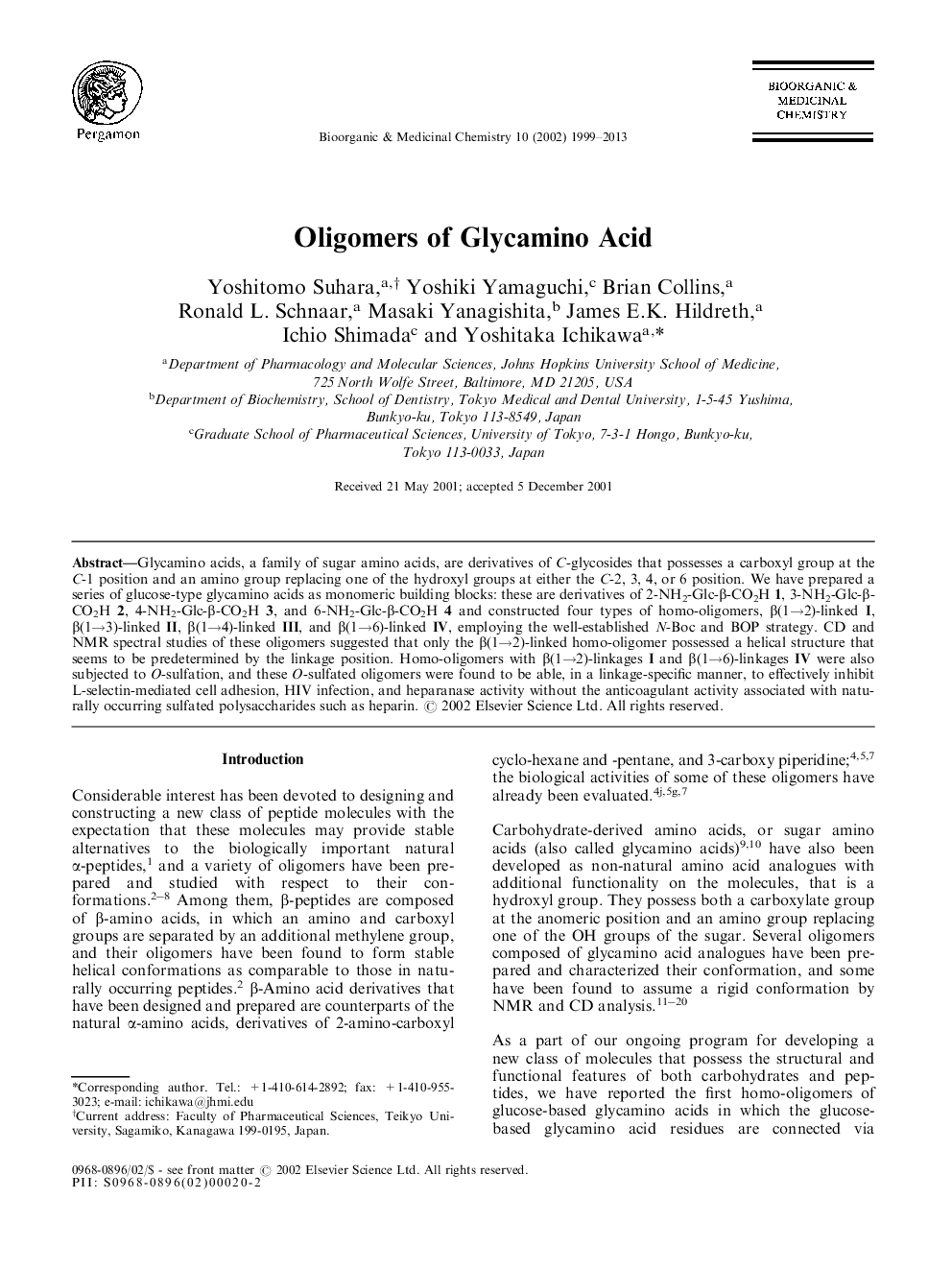| کد مقاله | کد نشریه | سال انتشار | مقاله انگلیسی | نسخه تمام متن |
|---|---|---|---|---|
| 1366039 | 981579 | 2013 | 15 صفحه PDF | دانلود رایگان |

Glycamino acids, a family of sugar amino acids, are derivatives of C-glycosides that possesses a carboxyl group at the C-1 position and an amino group replacing one of the hydroxyl groups at either the C-2, 3, 4, or 6 position. We have prepared a series of glucose-type glycamino acids as monomeric building blocks: these are derivatives of 2-NH2-Glc-β-CO2H 1, 3-NH2-Glc-β-CO2H 2, 4-NH2-Glc-β-CO2H 3, and 6-NH2-Glc-β-CO2H 4 and constructed four types of homo-oligomers, β(1→2)-linked I, β(1→3)-linked II, β(1→4)-linked III, and β(1→6)-linked IV, employing the well-established N-Boc and BOP strategy. CD and NMR spectral studies of these oligomers suggested that only the β(1→2)-linked homo-oligomer possessed a helical structure that seems to be predetermined by the linkage position. Homo-oligomers with β(1→2)-linkages I and β(1→6)-linkages IV were also subjected to O-sulfation, and these O-sulfated oligomers were found to be able, in a linkage-specific manner, to effectively inhibit L-selectin-mediated cell adhesion, HIV infection, and heparanase activity without the anticoagulant activity associated with naturally occurring sulfated polysaccharides such as heparin.
GraphicFigure optionsDownload as PowerPoint slide
Journal: Bioorganic & Medicinal Chemistry - Volume 10, Issue 6, June 2002, Pages 1999–2013